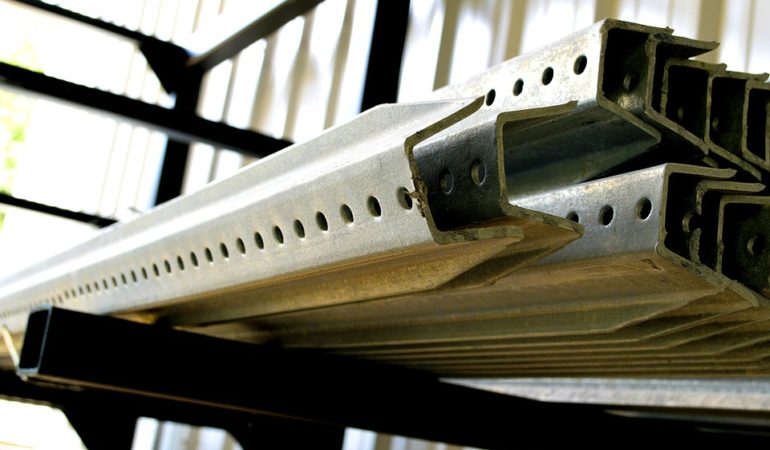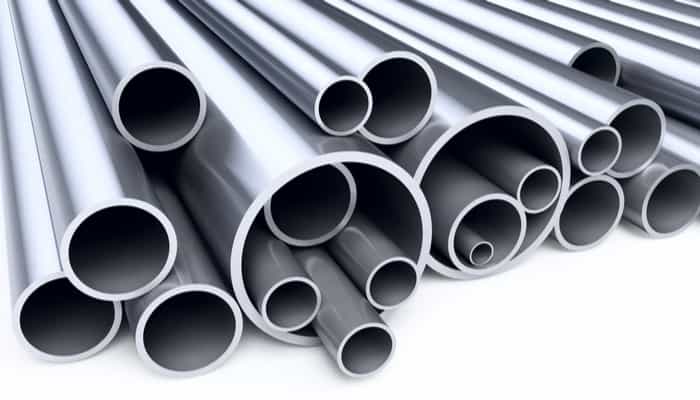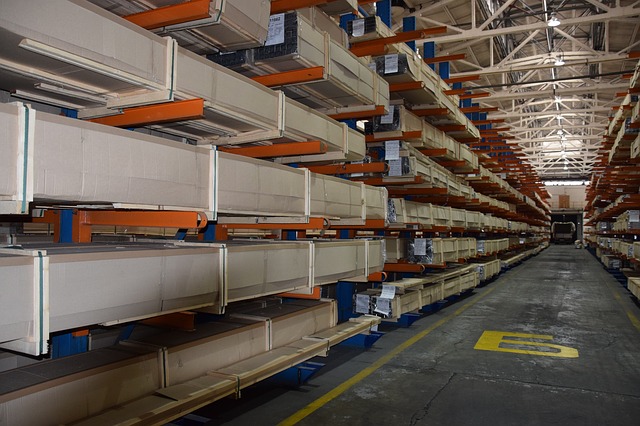Are you unsure whether to choose aluminum as the metal for your project? Give your worries rest and read on to find the benefits and applications of aluminum.
With so many metals used by fabricating companies, it is challenging to settle for the best metal for your project. A reputable metal fabricating company in Dubai can help in deciding for you. Better yet, you could research yourself. This article, for instance, is well investigated on aluminum and its benefits.
Aluminum fabrication relates to the construction of metal structures through cutting, bending, and joining. The extrusion of aluminum goes through other processes such as fabrication, machining, and surface treatment.
The popularity of aluminum for fabrication is relatively high. As a result, there is a significant demand for aluminum in Dubai. This is because of certain benefits of the metal that makes it stand out.
Benefits of Aluminum Fabrication
Table of Contents
These benefits include;
- Lightweight and durable.
- cost-effectiveness
- Resistance from corrosion.
- Excellence in heat and electrical conduction.
- Fully recyclable
- Suitable for a range of finishing options
- Sustainability
Lightweight
Aluminum, as a known lightweight metal, weighs approximately 2.71g/cm3. Being about a third of the weight of steel, which makes it easier and cheaper to transport than most metals.
Its lightweight nature and flexibility mean that in some respects, the fabrication companies must handle it carefully. Nevertheless, aluminum is also more forgiving than carbon steel, which would break before flexing or bending. The flexibility of aluminum means the material has a unique strength that stands up nicely for a wide range of uses.
Because it is lightweight, has corrosion resistance, and has easy fabrication, aluminum sheets are firm. Aluminum can be used for vehicle paneling, artwork, building cladding, and kitchen fitting, among other applications.
Cost-effective
Aluminum is a lightweight metal that is both strong and versatile and can be used in various applications. Be it outdoors or indoors—fabrications such as roofing, gutters, framing, and much more.
Because it is versatile and has a low cost compared to other metals, aluminum is best used for industrial purposes, including; military, aerospace, commercial and residential.
Aluminum is utilized across various industries. This is because the metal sheet is excellent for any contractor looking to cut their overhead costs.
Corrosion resistance
Aluminum is a corrosion-resistant metal that naturally generates a protective coating. When the metal comes into contact with an oxidizing environment, it generates a very thin layer to protect itself from rust.
This protective oxide layer helps protect the surface of the metal from corrosion. Additionally, getting surface treatment such as painting or anodizing can further improve the overall corrosion resistance of the metal.
Corrosion resistance is an added advantage to both end-users and suppliers. This is because aluminum will not lose its quality or succumb to wear and tear sooner due to a lack of maintenance. The benefit has made it a versatile material that aluminum can be used alongside other expensive products.
Electrical and thermal conductivity
Aluminum is an excellent conductor of heat and electricity. Even though it is not as conductive compared to copper, aluminum is one-third of copper’s weight. This means that an aluminum wire with half the weight of copper wire would have the same amount of electrical resistance.
Because of its conductivity, it is chosen as the material for power transmission lines.
The metal is also an excellent conductor of heat. It is used in various applications such as; LED lights, electrical products, and computer motherboards.
Fully recyclable
Almost any metal fabrication project will involve a bit of waste. As the material is cut, formed, and otherwise manipulated. While most metals are recyclable, aluminum is unique as it is one hundred percent recyclable.
This metal is one of the most recyclable materials on the planet. And, aluminum doesn’t lose its natural structure no matter how many times it is recycled and reused.
In metal fabrication, one main priority is to keep waste low. Thus, you might prefer to work with aluminum. This is because any remaining piece is recycled or used for other projects.
The material is so versatile that fabricators can repurpose it repeatedly for use within the fabrication shop.
Suitable for a range of finishing options
Not all metals take well to finishes. Many types of metals are suitable for only a handful of finishing options. They can severely limit your choices when you are having a piece fabricated.
Alternatively, aluminum’s unique composition makes it highly receptive to a long list of finishing options. Aluminum fabricated pieces can be completed with:
- Anodised finishes creating an added oxide layer.
- Performance coatings like powder coating.
- Mechanical finishes, such as sanding or grinding.
- Bright dipped finishes using nitric acids and phosphorus for a mirrored look.
- Sublimation finishes using a patterned film.
With so many finishing possibilities, aluminum can quickly gain new qualities to complement the use or purpose of the piece.
The qualities are valuable, even if they are purely cosmetic or for decorative purposes.
Sustainability
Outside aluminum’s day-to-day conveniences, it is also the sustainable material of choice in many markets. As Dubai strives for a more fuel-efficient future, aluminum is a big part of the solution.
Lightweight, durable, and infinitely recyclable, value-added aluminum products can lower energy costs. This will, in turn, reduce carbon emissions in dozens of applications. Coated aluminum roofs can reflect up to 95 percent of sunlight. This dramatically increases building energy efficiency.
Highly recycled and lightweight aluminum packaging can reduce shipping costs and carbon emissions for beverage makers.
From light-weighting to recycling, the aluminum industry is a solution to the world’s energy needs.
Having looked at the benefits of aluminum, let us see how aluminum is applicable.
Applications of Aluminum Fabrication
While the various surface treatments of aluminum offer slightly different industry applications, this article has a compiled combined list. These tips include aluminum applications for adonizing, powder coating, and wet coating.
Power lines
Due to its conductivity, aluminum is ideal for wiring power grids. This includes overhead power transmission lines and local power distribution lines.
Since aluminum has more than half the conductivity of copper, but with only 30 percent of the weight. A bare wire of aluminum with similar electrical resistance will weigh only half as much.
Aluminum is also less expensive, which makes it cheap.
Window frames
Aluminum frames are generally quite durable, cost-effective options for homes and offices. Since it is lightweight and can be made impact-resistant, it is helpful in places that experience high winds and powerful storms.
Making use of aluminum for window frames is usually low-maintenance and less costly than wood. It is also more resistant to scratching and cracking.
High Rise buildings
Aluminum has quite a high malleability to strength ratio and versatility. This makes it a valuable material at the heart of high-rise buildings and skyscrapers.
It is also an ideal material because of its durability, design flexibility, and contributions to energy savings, both front-end, and back-end.
Furthermore, skyscrapers would weigh more if steel were used, which would need building foundations to be deeper and add to the construction costs.
Consumer electronics
Aluminum has become the go-to metal for use in manufacturing consumer electronics. This is because it combines beauty with practicality.
Smartphones, tablets, laptops, flat-screen TVs, computer monitors, and other electronics are increasingly using aluminum in their production. This is because it can look sophisticated, yet it is reliable.
Electronics manufacturers used aluminum primarily for producing cooling CPUs and graphic processors. Recently they have been implementing aluminum to replace steel and plastic in the production of consumer electronics. Newer models of electronics feature aluminum bodies and casing components.
Household and industrial appliances
Aluminum is used in precision tubing for refrigerators and air conditioners. This is because of its heat conduction quality, which enables it to act as a distributive heat agent, facilitating the cooling process and creating highly efficient refrigeration.
Many consumer’s washers, dryers, dishwashers, and other appliances also employ aluminum frames in their design.
Aircraft components
Aluminum has three excellent properties that make it useful in the aviation industry—high strength to weight ratio, excellent elasticity, and high corrosion resistance. It is because of aluminum that human beings have been able to fly in the first place.
Given that aluminum is comparable to steel in strength with only a fraction of the weight, using it in aircraft construction affords planes more weight capacity for cargo and passengers and greater fuel efficiency.
Aluminum’s high resistance to corrosion also helps ensure the safety of the aircraft and its passengers, which is one of its most fundamental requisites of air travel.
Conclusion
As you can see from our article, aluminum has many benefits and applications. Plus, working with the correct aluminum fabricator, many of these applications and benefits increase.
Fabrication poses many possibilities for construction, manufacturing, and other necessary industries. The ready availability of various metals like aluminum can afford you incredible project diversity.
At eminence metal, we work with you and your specifications to perfect aluminum solutions. Offering you all of the benefits aluminum has to offer. Reach out to us today to discuss your metal fabrication need



